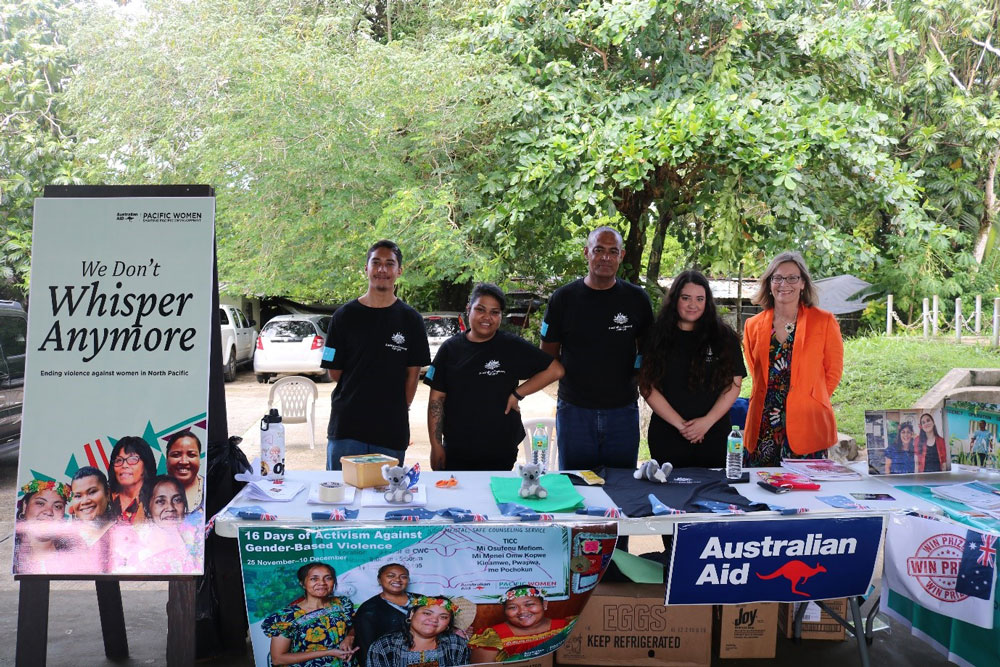-
2025-26 bilateral allocation [budget estimate]
-
$3.6 million
-
2025-26 total Australian ODA [budget estimate]
-
$11.4 million
-
2024-25 bilateral allocation [budget estimate]
-
$3.1 million
-
2024-25 total Australian ODA [budget estimate]
-
$4.7 million
-
2023-24 total Australian ODA [actual]
-
$6.0 million
Australia’s long-term development cooperation with FSM is delivering important outcomes in priority sectors, including investing in climate change and disaster resilience initiatives in renewable energy, strengthening safety and economic opportunities for women and children, improving health, education and scholarships opportunities.
Australia is supporting FSM’s efforts to increase electrification and reach renewable energy targets through investments in remote solar mini-grid systems in Chuuk, Yap and Pohnpei states, in partnership with SPC and through co-investments from the Australian Infrastructure Financing Facility for the Pacific (AIFFP).
Australia, along with the Government of FSM and the Asian Development Bank, is co-financing the Improving Quality Basic Education Project to help improve the effectiveness and efficiency of the national and state education systems, and drive gains in early grade learning (Australia's contribution is valued at $2.4 million ). Australia has also deployed three education specialists to assist the Department of Education to coordinate effective implement of the project. Australia is working to address gender equality in FSM. Our activities, working closely with FSM partners, aim to foster economic empowerment of women and reduce the incidence of gender-based violence. Australia also supports initiatives to improve opportunities for women through our scholarships and at the local level through flexible, small grants.
Australia is providing $2.12 million to support FSM address the oil spill risk from World War II wrecks in the Chuuk Lagoon, helping protect local communities and the environment.
Australia is co-funding with the United States and Japan the East Micronesia Cable project, boosting telecommunications across FSM, Nauru and Kiribati, through AIFFP.
Australia's regional programs complement its bilateral programs across the Pacific. Our regional programs include those that assist the FSM manage its fisheries (through the Forum Fisheries Agency), mitigate the impacts of severe climate, tidal and oceanographic events, (through the Climate and Oceans Support Program in the Pacific), and strengthen awareness of medicine safety (through the Pacific Medicines Testing Program).


